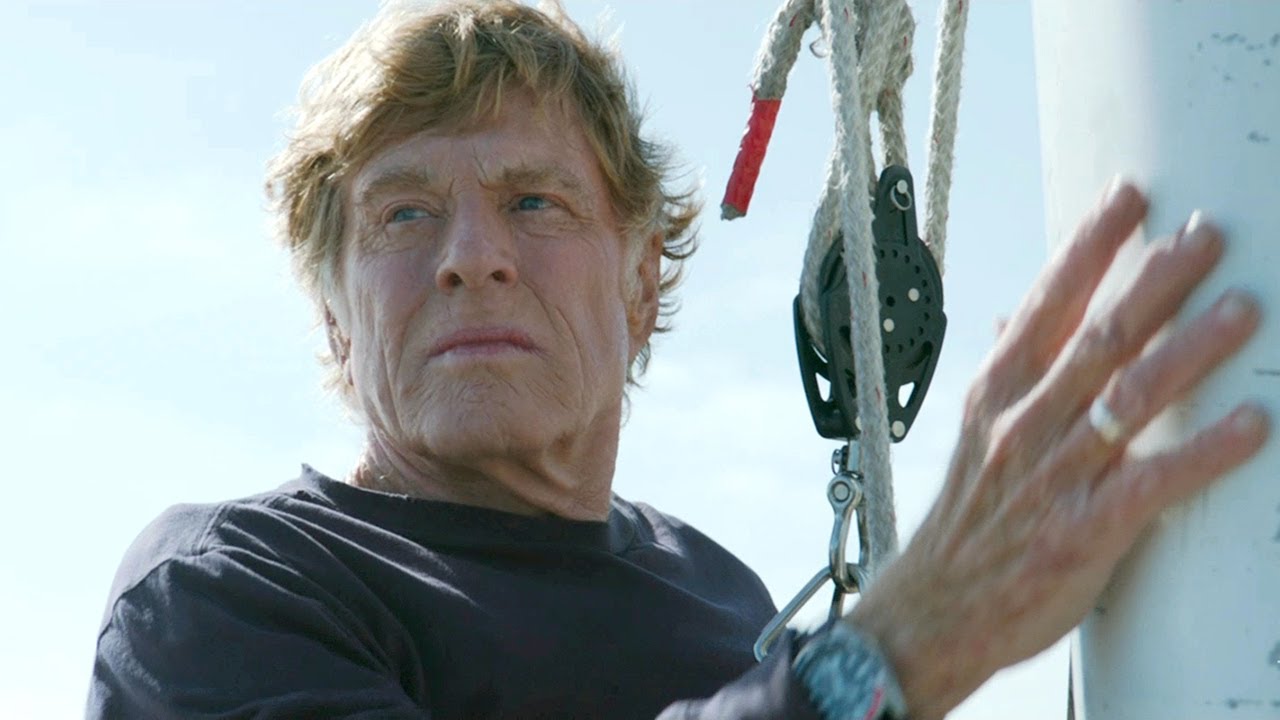
For most people in the film industry, they pick something they are talented at – whether its scriptwriting, directing, producing, acting, cinematography, or editing – and stick at it, slowly working their way up through the business.
Others are not content to simply stick to one discipline, instead choosing to dabble in more than one skill. After writer-directors and producer-directors, one of the most common combinations in the industry are actor-directors, people who are known equally for their acting chops as their skill behind the camera.
The past few years have seen some excellent examples of actors picking up a camera. Whether its Greta Gerwig (also known for her excellent screenwriting) directing Lady Bird, Bradley Cooper achieving phenomenal success with A Star is Born, or even Jonah Hill revisiting his childhood with Mid-90s, it has become something of a fashion for established actors to turn to directing. This list displays those who managed to do both with ease, in turn creating some of the most memorable films ever made.
1. Woody Allen
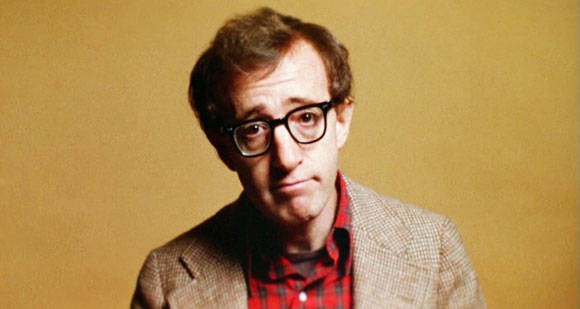
Woody Allen is the typical auteur; writing, directing and starring in his own movies. Starting as a neurotic and sex-obsessed post-60s equivalent of Charlie Chaplin in films such as Everything You Wanted To Know About Sex*, Bananas and Love and Death – which balanced witty verbal barbs with visual gags – he soon morphed into a master of tragi-comedy with Annie Hall and Manhattan.
His range as an actor, mostly relying on excessive hand movements, constantly coughing and stuttering on his own words, may not be the widest in the world, but works perfectly for his own films, which are an endless variation on the same themes of love, loss and morality. Having grown up in the world of stand-up comedy, his timing is impeccable, giving his jazz-scored films a certain rhythm that helps them to move between despair and elation with ease.
Outside of his own direction he doesn’t act very much, but has appeared in films as diverse as Antz, Scenes from A Mall, Jean-Luc Godard’s King Lear, The Imposters and Fading Gigolo. He is better awarded for his writing and directing, having received 23 Academy Award nominations and four wins, but he did get an acting nomination for his star turn as a nebbish comedian in Annie Hall.
2. Clint Eastwood
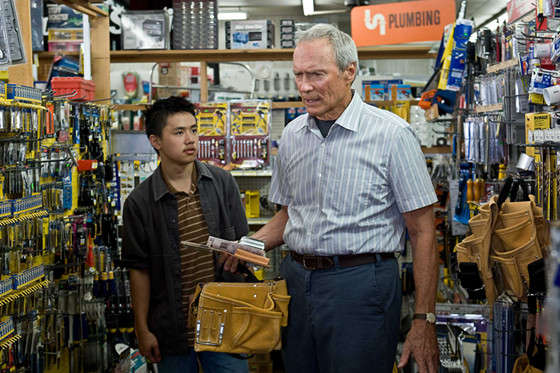
Clint Eastwood is one of the most prolific directors in the business, and at 88 years old, there seems to be no sign of letting up. He started as an actor, garnering fame for his stoic turn as The Man With No Name in Sergio Leone’s Dollars trilogy.
The Western influence evidently had an impact on the actor, who after the stalker drama Play Misty for Me, made his name with a series of brilliant westerns he starred in himself, including High Plains Drifter, The Outlaw Josey Wales, Bronco Billy, Pale Rider and Unforgiven.
His films are undeniably American, looking at core values of patriotism, gun ownership and duty through a cynical and revisionist lens. Even non-Westerns like Sully, Heartbreak Ridge and American Sniper can be described as being inspired by the issues brought up by the genre.
He makes a great actor-director combo as his own performances, as seen in Gran Torino and The Mule, reflect his own approach to filmmaking; lean, off-the-cuff and achieving more with less. With two films released in the past year alone, Eastwood has eased off acting somewhat, but his return in The Mule shows what an idiosyncratic personality the Hollywood veteran truly has.
3. Charlie Chaplin
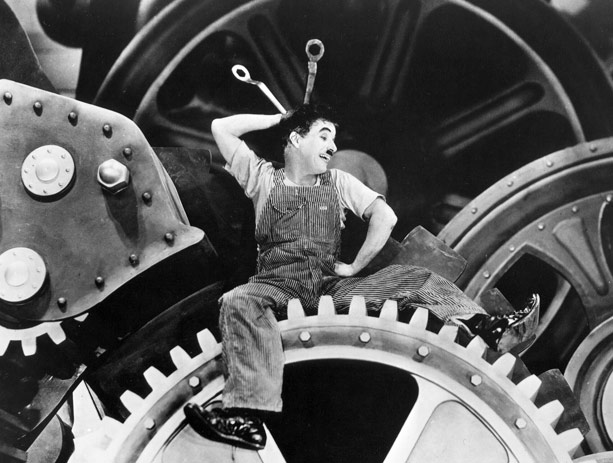
Charlie Chaplin is the prototype of the writer-actor-director; obsessively controlling almost every aspect of his own movies. Spanning from the silent era to the late 60s, it is hard to separate Chaplin the actor from Chaplin the director, as he only ever directed two films that he didn’t star in. He started with scores of short movies, slowly developing the infamous Tramp character – a happy-go-lucky guy who finds himself constantly in trouble with the law while chasing after beautiful girls.
With The Kid, released in 1921, he created what was possibly the first tragi-comedy in cinema, following it up with a string of 20s hits, including The Gold Rush and The Circus. In the 30s, while the rest of the world was adapting to sound, Chaplin sticked with silent film, creating his two greatest hits: City Lights and Modern Times.
Along with Buster Keaton, Chaplin is seen as the greatest actor of the silent era, being able to perform hilarious stunts with incredible ease. Whether it’s the skating scene in Modern Times, the boxing scene in City Lights or the cabin rocking over the cliff edge in The Gold Rush, Chaplin inspires both laughter and awe at his brilliant technique.
4. Orson Welles
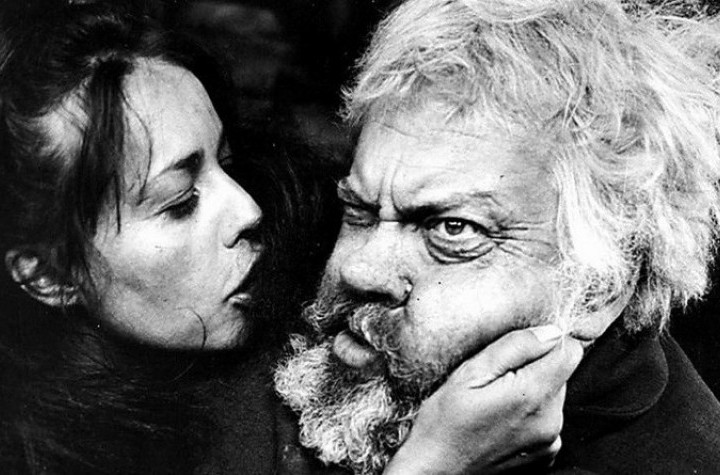
Orson Welles returned to the spotlight in 2018 after his long-gestating The Other Side of The Wind finally made it to Netflix after languishing for forty years in a legal quagmire. A very obvious autobiographical portrait. it stars John Huston as a director attempting to finish a film that is beset by endless troubles.
This speaks to Orson Welles issues when dealing with Hollywood; after making the peerless Citizen Kane – where he was given full creative control – Welles never had the opportunity to make a film exactly as he wished again. This was an almighty shame, considering the expert ways he blended his own physicality as a performer with innovative camerawork and framing to make some of the most brilliant films ever made.
The best showcase for Welles acting can be found in his Shakespeare adaptations, particularly the never-bettered interpretation of Falstaff in Chimes of Midnight. But Orson Welles’ brilliance is not confined to acting in his own films: alongside long-time colleague Joseph Cotten, Welles puts in a fantastic shift as Harry Lime in The Third Man, elevating the movie from a striking film noir to one of the greatest films ever made.
5. Kenneth Branagh
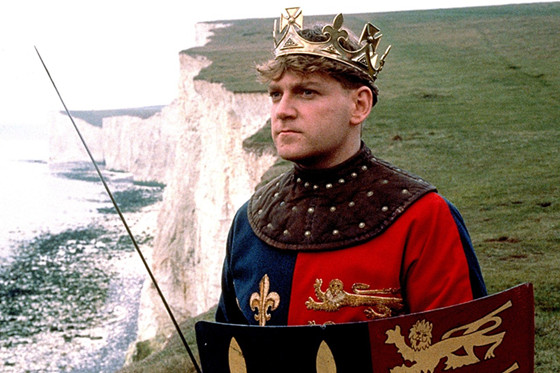
In the latter half of the twentieth century and the early 00s, nobody put on Shakespeare adaptations as freely and as memorably as Kenneth Branagh. An alumni of the Royal Academy of Dramatic Art in London – where he is now president – and veteran of Royal Shakespeare Company productions, he started his assault on the Bard’s oeuvre with Twelfth Night, before brilliantly bringing Henry V and Much Ado About Nothing to the big screen.
Starring as the lead role in these adaptations, he thrillingly realised the modern widescreen potential of Shakespeare adaptations, freeing them from the dull constraints of endless BBC productions.
His most memorable adaptation is of Shakespeare’s densest and most challenging play, Hamlet. The second last film to be shot in 70mm film (before The Master in 2012) it was also the first unabridged Hamlet adaptation to hit the big screen – resulting in a runtime of over 4 hours.
This is easily the apotheosis of Kenneth Branagh’s career, and the perfect combination of his love of acting and directing Shakespeare. Taking his love of Shakespeare one step further, he finally directed himself as the bard with All is True, which was released late last year.